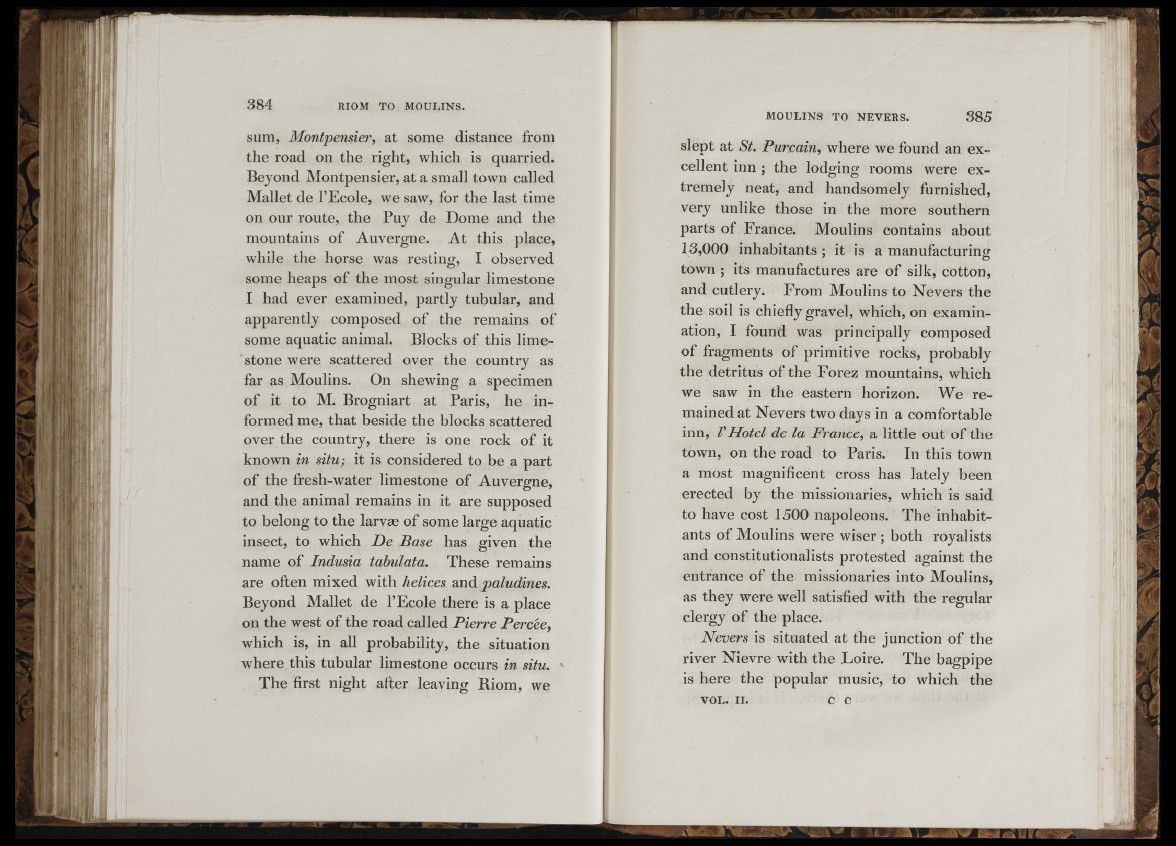
[i i I:
sum, Montpensier, at some distance from
the road on the right, which is quarried.
Beyond Montpensier, at a small town called
Mallet de I’Ecole, we saw, for the last time
on our route, the Puy de Dome and the
mountains of Auvergne. At this place,
while the horse was resting, I observed
some heaps of the most singular limestone
I had ever examined, partly tubular, and
apparently composed of the remains of
some aquatic animal. Blocks of this limestone
were scattered over the country as
far as Moulins. On shewing a specimen
of it to M. Brogniart at Paris, he informed
me, that beside the blocks scattered
over the country, there is one rock of it
known in situ; it is considered to be a part
of the fresh-water limestone of Auvergne,
and the animal remains in it are supposed
to belong to the larvae of some large aquatic
insect, to which De Base has given the
name of Indusia tabulata. These remains
are often mixed with helices and paludines.
Beyond Mallet de l’Ecole there is a place
on the west o f the road called Pierre Percée,
which is, in all probability, the situation
where this tubular limestone occurs in situ. ■-
The first night after leaving Biom, we
slept at St. Purcain, where we found an excellent
inn ; the lodging rooms were extremely
neat, and handsomely furnished,
very unlike those in the more southern
parts of France. Moulins contains about
13,000 inhabitants ; it is a manufacturing
town ; its manufactures are o f silk, cotton,
and cutlery. From Moulins to Nevers the
the soil is chiefly gravel, which, on examination,
I found was principally composed
o f fragments of primitive rocks, probably
the detritus of the Forez mountains, which
we saw in the eastern horizon. We remained
at Nevers two days in a comfortable
inn, VHotel de la France, a little out of the
town, on the road to Paris. In this town
a most magnificent cross has lately been
erected by the missionaries, which is said
to have cost 1500 napoleons. The inhabitants
of Moulins were wiser ; both royalists
and constitutionalists protested against the
entrance of the missionaries into Moulins,
as they were well satisfied with the regular
clergy of the place.
Nevers is situated at the junction o f the
river Nievre with the Loire. The bagpipe
is here the popular music, to which the